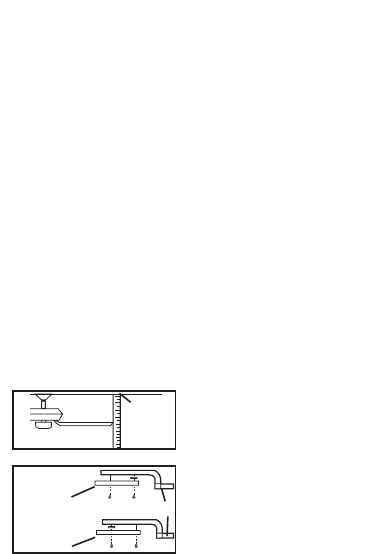
20
UL-ES-3V52-WH 04 (rev 1)
TROUBLESHOOTING GUIDE
If you have difficulty operating your new ceiling fan, it may be the result of incorrect assembly, installation, or wiring. In some cases, these
installation errors may be mistaken for defects. If you experience any faults, please check this Trouble Shooting Chart. If a problem cannot
be remedied, please consult with your authorized electrician and do not attempt any electrical repairs yourself.
TROUBLE
1. If fan does not start:
2. If fan sounds noisy:
3. If fan wobbles:
4. If light does not work:
SUGGESTED REMEDY
1.Check main and branch circuit fuses or circuit breakers.
2.Check wire connections as performed in step #17 or #18 of installation. CAUTION: Make sure main power is turned off.
3.Make sure slide switch is pushed firmly to one side or the other. The fan will not operate with the slide switch in the middle.
4.If the fan still will not start, contact a qualified electrician. Do not attempt to troubleshoot internal electrical connections yourself.
1.Check to make sure all screws in motor housing are snug (not over tightened).
2.Check to make sure the screws which attach the fan blade holder to the motor are tight.
3.If using an optional Ceiling Fan Light Kit, check to be sure the screws securing the glassware are finger tight. Check to be sure light bulb is tight in socket and not
touching glass shade(s). If vibration persists from glass, remove glass and install a 6mm wide rubber band on glass neck to act as an insulator. Replace glass and
tighten screws against rubber band.
4.Some fan motors are sensitive to signals from Solid State variable speed controls. DO NOT USE a Solid State variable speed control.
5.Allow “break-in” period of 24 hours. Most noises associated with a new fan will disappear after this period.
All blades are weighed and grouped by weight. Natural woods vary in density which could cause the fan to wobble even though all blades are weight-matched.
The following procedures should eliminate most of the wobble. Check for wobble after each step.
1.Check that all blades are screwed firmly into blade holders.
2.Check that all blade holders are tightened securely to motor.
3.Make sure that canopy and mounting bracket are tightened securely to ceiling joist.
4.Most fan wobble problems are caused when blade levels are unequal. Check this level by selecting a point on the ceiling above the tip of one of the
blades.Measure this distance as shown in Figure 1. Keeping measure within 3mm, rotate the fan until the next blade is positioned for measurement.
Repeat for each blade. If all blade levels are not equal, you can adjust blade levels by the following procedure. To adjust a blade tip up, insert a
washer (not supplied) between the blade and blade holder at the two screws closest to the motor (Figure 2). To adjust a blade tip down, insert washer (not
supplied) between the blade and blade holder at the screw farthest from the motor (Figure 2).
5.If blade wobble is still noticeable, interchanging two adjacent (side by side) blades can redistribute the weight and possibly result in smoother operation.
1. Check to see that molex connector in the switch housing is connected
2. Check for faulty light bulbs.
3. If light kit will still not operate, contact a qualified electrician for assistance.
Figure 1
Touching
Ceiling
Blade Tip Up:
Fan Blade
Blade Tip Down:
Fan Blade
Blade Brackets
Figure 2
UL_Vector 1/21/04 11:54 AM Page 20


















